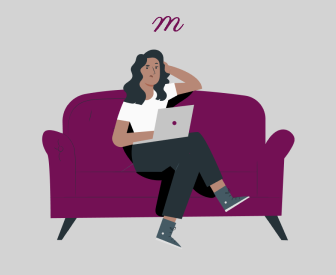CPT codes are numbers used to reimburse specific mental health services. CPT codes are essential for billing, ensuring the accuracy of services reported, and receiving reimbursement from third-party payors.
Billing the correct CPT code is necessary for a mental health clinician. CPT codes help ensure accurate documentation of the services you provide. Psychotherapists must know a variety of CPT codes to bill specific services.
Psychotherapy services encompass many different therapeutic settings. The CPT code 90853 is used to denote group therapy. Group therapy differs from individual therapy, couples therapy, family therapy, or an intake assessment.
What is the 90853 Code?
According to the Centers for Medicare & Medicaid Services, the 90853 CPT code is used to signify group therapy. Group therapy occurs when a therapist and at least two participants work on a theme in a therapeutic setting. It’s recommended for billing purposes to have no more than 10 participants in a group if you’re billing Medicaid or Medicare.

New! Transfer your notes to EHR with a single click. No more copy-pasting.
The CPT code 90853 can be billed no more than once per day. The therapist must be trained to lead a group because psychotherapy services are being performed. Social workers, counselors, psychologists, substance use counselors, psychiatrists, and marriage and family therapists are examples of trained mental health professionals who can lead a group.
What is group therapy?
Group therapy consists of a healthcare provider treating many patients at one time. An overview of group therapy on PubMed reports that group therapy can be effective for treating conditions such as:
- Attention deficit hyperactivity disorder (ADHD)
- Post-traumatic stress disorder (PTSD)
- Emotional trauma
- Anxiety
- Depression
- Substance Use
Other types of group topics or presenting problems may be helpful for clients. Groups help providers treat similar issues at once. Group members can receive more support for the problems for which they seek help. Group therapy usually focuses on one topic or particular topics of interest to the group members.
There are also many different kinds of groups. Some groups could be focused on skill-building, while others could be educational groups about a specific condition. Either way, to bill the 90853 CPT code, therapy is being provided to a group of two or more people. According to Medicare standards, the maximum number of participants allowed in a group is ten.
The CPT code 90853 is distinct from the similar code 90849, which is multi-family group therapy. Multi-family group therapy is a CPT code that is rarer than group therapy. You would only bill 90849 when you are treating two groups of families.
What are the benefits of group therapy for patients?
If you’re a mental health professional who provides group therapy, there are many benefits for you and the patients. The essential advantage of providing group therapy is being able to help multiple clients at once.
There are numerous benefits to being in a group setting for clients or patients. Research indicates that some potential benefits of group therapy include:
- Fostering connection and group cohesion
- Fostering secure attachments with others
- Feelings of belonging
- Fostering trust with others
- Learning to regulate emotions
- Being more open to differing perspectives
- Fostering a sense of well-being among marginalized groups
- Helping group members develop a sense of hope
- Helping group members practice gratitude
- Learning how to forgive
- Developing accountability
- Cultivating humility among group members
While not all of these outcomes occur within every group, group therapy can help individuals with personal growth and help members relate to others in healthy ways.
Is there a time limit for group therapy to bill 90853?
No, there is not a time limit for group therapy. This differs from other CPT codes that may be time-restricted. You can only bill the CPT code once per day for group therapy. Many people keep their groups between 45-60 minutes, but you can have a group longer than this.
You also can bill group therapy and individual therapy on the same day. You just want to ensure that you use accurate codes for billing the differing services and make sure that you don’t bill the different services at the same time.
Reimbursement for Group Therapy
The reimbursement rate for group therapy can depend on the insurance payor and the state you’re located in. Group therapy reimbursement is typically lower than individual, couples, or family therapy sessions.
The current Medicare reimbursement rate for group therapy is $27.18 per group session. Other reimbursement rates for group therapy are dependent on your licensure, the state in which group therapy is conducted, and the payor source.
Modifiers for Group Therapy
Many billing codes have modifiers that help account for the services administered. When you provide group therapy services, you can also bill the code 90785 for interactive complexity when you bill for group therapy.
When you bill for interactive complexity, there are factors related to administering a psychotherapy service that have made communication difficult in some way. In other words, interactive complexity means factors that have complicated patient service delivery.
The Centers for Medicare and Medicaid Services (CMS) outlines what factors include interactive complexity.
When the following occurs, interactive complexity can be billed:
- When there are high levels of maladaptive communication that complicate the delivery of services
- When the emotions of a caregiver interfere with the plan of treatment
- When there is an event that prompts a mandated report or disclosure of an event that prompts a mandated report
- When physical devices are needed to deliver services because services aren’t delivered in the patient’s first language.
CMS emphasizes that interactive complexity should not be billed solely for translation or interpretation services, as this can violate federal law.
What are the Documentation Requirements for Group Therapy?
The documentation requirements for group therapy also differ from individual or couples therapy. With most group documentation, the mental health professional must document what the group was about, and what goals were achieved during the group.
Most professionals who run group therapy sessions must also document each individual’s response to group therapy. For group therapy documentation, you must write what occurred and how each individual responded to the group interventions.
There are some specific guidelines about what does and doesn’t count as group therapy. You can’t consider the following group therapy under Medicare standards:
- Monitoring daily living activities
- Teaching hygiene or grooming skills
- Taking the time to prepare reports
- Recreational therapy that includes play, art, or dance
- Eating meals together
- Outings with group members
- Social interaction
- Travel time to a location
- Providing the group with self-help materials
It’s important that if you provide groups, you have a topic related to therapy or that treats presenting issues. If you don’t have a topic that is related to therapy or presenting problems you may not receive reimbursement for the groups that you provide.
Why is Group Therapy Documentation Important?
Documenting and billing group therapy accurately is important not only for billing purposes but also for tracking the progress of the participants. If you conduct group therapy multiple times weekly you may have the same participants joining your groups and participating.
Developing therapeutic rapport over time can help group members become more engaged in the group therapy process and get more out of group sessions. If you have some of the same people in your groups your documentation can help you assess group members engagement over time.
Proper documentation of group therapy can also help mental health professionals assess which topics were engaging and which topics may have been difficult to address or treat. You can see what group members responded to well and what they didn’t.
Proper documentation allows you to also get paid for your services on time. Remember, that you will need to document your group therapy interventions as well as each individual group members response to group therapy treatment.
The Bottom Line:
The 90853 CPT code is used to bill group therapy. When you provide a psychotherapy service for a group of people who otherwise aren’t related to each other or weren’t previously acquainted with each other, this constitutes group therapy.
The reimbursement rate for group therapy is lower than for individual therapy. You can bill one unit of group therapy per day. You can also bill for individual therapy services the same day you conduct group therapy.
When difficulties arise with communication within the group, the interactive complexity modifier can be used. You can’t use the modifier solely for translation or interpretation services.
There are limits to what you can explore in group therapy. Groups focused on hygiene or grooming skills aren’t considered group therapy. Socialization groups, meal times, and transportation to or from an activity are not group therapy.
There is no time limit on group therapy. Ensuring you properly capture and document group therapy services helps you get paid for services on time. As with any CPT code, it helps you accurately describe the services provided.
To properly document, you must address what the group was about and what interventions were used. Since group therapy can be conducted with up to ten participants, you must also document each individual’s response to the group therapy interventions for reimbursement.
Article references:
- Marmarosh C, et al. (2022). New Horizons in Group Psychotherapy Research and Practice from Third Wave Positive Psychology: A Practice-Friendly Review. https://www.ncbi.nlm.nih.gov/pmc/articles/PMC9893048/
- American Academy of Child & Adolescent Psychiatry. (2012). Interactive Complexity. https://www.psychiatry.org/getmedia/86779486-e341-4793-81b0-3f065f2c914c/APA-AACP-CPT-Interactive-Complexity.pdf
- Centers for Medicare & Medicaid Services. (2022). Billing and Coding: Psychiatry and Psychology Services. https://www.cms.gov/medicare-coverage-database/view/article.aspx?articleId=57480
- Malhotra A, et al. (2022). Group Therapy. https://www.ncbi.nlm.nih.gov/books/NBK549812/
Why other mental health professionals love Mentalyc

“It’s so quick and easy to do notes now … I used to stay late two hours to finish my notes. Now it’s a breeze.”
Licensed Professional Counselor

“Having Mentalyc take away some of the work from me has allowed me to be more present when I’m in session with clients … it took a lot of pressure off.”
LPC

“It takes me less than 5 minutes to complete notes … it’s a huge time saver, a huge stress reliever.”
Licensed Marriage and Family Therapist

“By the end of the day, usually by the end of the session, I have my documentation done. I have a thorough, comprehensive note … It’s just saving me hours every week.”
CDCII






